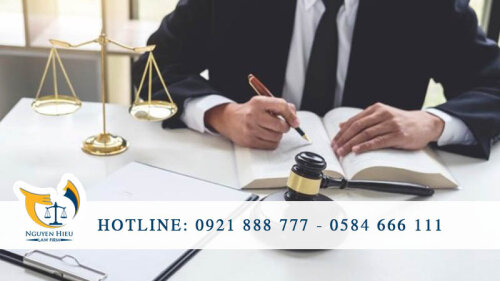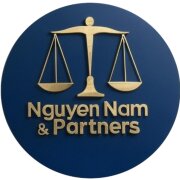Best Commercial Real Estate Lawyers in Dong Nai
Share your needs with us, get contacted by law firms.
Free. Takes 2 min.
Free Guide to Hiring a Real Estate Lawyer
List of the best lawyers in Dong Nai, Vietnam
About Commercial Real Estate Law in Dong Nai, Vietnam
Commercial real estate in Dong Nai refers to land and buildings used for business purposes, such as offices, factories, warehouses, retail shops, and hotels. Dong Nai province, known for its strong industrial base and proximity to Ho Chi Minh City, is a strategic location for foreign investors and local businesses. Commercial real estate transactions include buying, selling, leasing, and transferring land use rights. Understanding the regulatory environment is crucial because Vietnam’s legal framework places significant emphasis on the protection of land rights, investment procedures, and compliance with national as well as provincial laws.
Why You May Need a Lawyer
Engaging in commercial real estate activities without adequate legal assistance can be risky, especially for those unfamiliar with Vietnamese laws and local practices. Here are some common situations where a lawyer’s help is essential:
- Drafting or reviewing contracts for purchase, sale, or lease of commercial property
- Verifying land use rights and title ownership
- Navigating complex approval procedures for foreign investors
- Resolving disputes with sellers, buyers, landlords, tenants, or authorities
- Advising on zoning or land-use regulations specific to Dong Nai
- Handling due diligence for mergers, acquisitions, or joint ventures involving real estate assets
- Ensuring tax compliance and addressing related legal obligations
- Managing construction permits and environmental assessment requirements
Local Laws Overview
Several key aspects of Vietnamese and Dong Nai provincial law apply to commercial real estate:
- Land Ownership: In Vietnam, all land is owned by the State. Individuals and entities can only obtain land use rights, which are transferable under certain conditions.
- Land Use Rights Certificate (LURC): This document proves the holder’s right to use and build on the property. Ensuring the LURC is valid and properly registered is essential.
- Foreign Investment: Foreign investors must comply with approvals under the Law on Investment, Law on Enterprises, and specific land laws. There are restrictions on types of land use and term lengths for foreign-invested projects.
- Lease and Transfer Procedures: All transfers and leases must be notarized and registered with local authorities. Lease durations for foreign-invested enterprises are typically capped depending on the project type.
- Zoning and Planning: Properties must be used in accordance with local zoning plans and permitted purposes detailed in the LURC.
- Taxes and Fees: Transactions may involve VAT, registration fees, and personal or corporate income tax depending on the parties involved.
- Dispute Resolution: Property disputes can be handled via negotiation, mediation, arbitration, or through Vietnamese courts. Legal counsel is often required for navigating this process.
Frequently Asked Questions
What is considered commercial real estate in Dong Nai?
Commercial real estate refers to properties used for business purposes, such as factories, warehouses, office buildings, hotels, and retail spaces.
Can foreigners own commercial property in Dong Nai?
Foreigners and foreign-invested enterprises cannot own land but may obtain land use rights through leases, subject to various restrictions and approvals.
What documents do I need when buying commercial real estate?
Key documents include the Land Use Rights Certificate, identity documents, investment approvals (for foreign investors), and the signed and notarized sale or lease agreement.
How is commercial real estate taxed?
Transactions may be subject to value-added tax, registration fees, and income tax. The specific taxes and rates depend on the legal status of the parties and the nature of the transaction.
How can I verify the title of a commercial property?
You should check the Land Use Rights Certificate and confirm its validity at the local Land Registration Office. Legal counsel can help with due diligence and title searches.
What is the typical lease term for commercial property?
Lease terms can vary, with up to 50 years common for foreign-invested enterprises, extendable in some circumstances based on local regulations and project needs.
What are zoning regulations, and how do they affect my property?
Zoning regulations define permissible uses for land. You must ensure the intended business activity matches the zoning plan for the location, as set by Dong Nai authorities.
What happens if there is a dispute over commercial real estate?
Disputes can be resolved through negotiation, mediation, arbitration, or in court. Legal advice is crucial to decide the best method and prepare necessary documentation.
Can I convert agricultural land to commercial use?
In certain cases, you may apply to change agricultural land to commercial use, but this requires approval from the authorities and payment of conversion fees.
Do I need a lawyer when signing a lease or purchase agreement?
It is strongly recommended to have a legal professional review all contracts to ensure compliance with Vietnamese law and protect your interests.
Additional Resources
Here are some helpful organizations and governmental bodies related to commercial real estate in Dong Nai:
- Dong Nai Department of Natural Resources and Environment - handles land registration, LURC issuance, and land use planning
- Dong Nai Department of Planning and Investment - oversees investment approvals and business registration
- Dong Nai Industrial Zones Authority - manages industrial zones, investment procedures, and infrastructure information
- Provincial Notary Offices - authorize and notarize real estate contracts
- Vietnam Real Estate Association - provides market information and policy updates
- Vietnam Chamber of Commerce and Industry (VCCI) - supports businesses with legal and investment resources
Next Steps
If you need legal assistance in commercial real estate in Dong Nai, consider the following steps:
- Clearly identify your goals and gather related documentation
- Consult with a licensed Vietnamese lawyer or a reputable law firm with experience in commercial real estate
- Discuss your situation and inquire about the applicable procedures, required documents, and possible risks
- Engage your lawyer to conduct due diligence, draft or review legal documents, and represent you in dealings with third parties or authorities
- Maintain organized records of all agreements and correspondences
- Stay informed about regulatory changes that may impact your commercial real estate interests in Dong Nai
Seeking qualified legal guidance early in your commercial real estate process helps mitigate risks, streamlines your transactions, and ensures full compliance with the laws of Vietnam.
Lawzana helps you find the best lawyers and law firms in Dong Nai through a curated and pre-screened list of qualified legal professionals. Our platform offers rankings and detailed profiles of attorneys and law firms, allowing you to compare based on practice areas, including Commercial Real Estate, experience, and client feedback.
Each profile includes a description of the firm's areas of practice, client reviews, team members and partners, year of establishment, spoken languages, office locations, contact information, social media presence, and any published articles or resources. Most firms on our platform speak English and are experienced in both local and international legal matters.
Get a quote from top-rated law firms in Dong Nai, Vietnam — quickly, securely, and without unnecessary hassle.
Disclaimer:
The information provided on this page is for general informational purposes only and does not constitute legal advice. While we strive to ensure the accuracy and relevance of the content, legal information may change over time, and interpretations of the law can vary. You should always consult with a qualified legal professional for advice specific to your situation.
We disclaim all liability for actions taken or not taken based on the content of this page. If you believe any information is incorrect or outdated, please contact us, and we will review and update it where appropriate.










